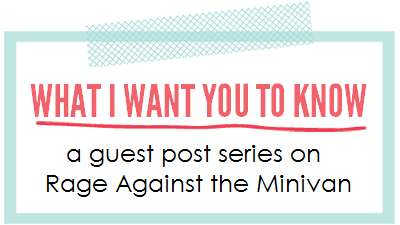I’m not sure when I first decided that I would be a breastfeeding mom, but I do know that not long after I became pregnant with our son, I began extensively researching all things baby. Though I wasn’t quick to label myself, you could more or less find me on the “attachment parenting” side of most baby-related issues, meaning I planned to have a “natural” birth, “wear” my baby in a sling as much as possible, would never let him “cry it out,” and would be exclusively breastfeeding for a minimum of six months and would not wean entirely before at least his first birthday. Formula was absolutely out of the question. I was a well-educated, health-conscious, and environmentally-friendly woman who knew “breast is best,” end of story. I prepared myself for my sure to be successful career as a breastfeeding saint by attending a La Leche League meeting, reading The Womanly Art of Breastfeeding cover to cover, and filling my birth plan with all the right breastfeeding-friendly protocols.
And then, my son was born. It was a beautiful, life-changing, medication-free birth resulting in a beautiful, full-term, 9lb. 5 oz baby boy, but the next day, there was talk of amniotic fluid, and breathing rates, and test results. He was sent for a short trip to the NICU and I dutifully came to him every three hours around the clock, putting him to my breast and waiting for my milk to come in. The next three weeks were a blur of sleepless nights and windowless rooms, hours spent nursing, pumping, and worrying in a agonizing cycle that I thought would never end. Each morning brought a new well-intentioned nurse with different advice and each night brought fresh tears as I struggled to figure out what I was doing wrong. Still, I didn’t let them give him so much as a pacifier. Still, he continued to lose weight until they said I had no choice but to supplement.
What I want you to know about low milk supply is that it absolutely devastated my identity as a mother. In fact, some days, it still does. I struggled for two more weeks after we came home to be the exclusively breastfeeding mother of my dreams, until I looked over at my son and realized that I had been so busy trying to feed him the “right” way, that I had barely had a moment to just take in the miracle of him. So I scaled back on the pumping and simply started bottle-feeding formula after each nursing. I knew that this choice was best for my son and for me, not to mention my poor husband with the madwoman for a wife, but that didn’t make it any easier for me to accept. Months later, I am still trying to accept it. I think a little part of me will always be sorry for what I couldn’t give him.
What I want you to know about low milk supply is that it exists and that every article I read about how any mom who wants to breastfeed can, and how 95% of mothers who think they have low milk supply don’t actually have it, or how only mothers with extreme medical conditions struggle with milk production, sends me several weeks back in the acceptance of my new reality. The fact that breastfeeding advocates apparently find honest discussion about low milk supply discouraging to new and expectant moms doesn’t make the experience any less real when it happens. It does, however, make it extremely confusing and unexpected.
What I want you to know about low milk supply is that when I share my story with you as I self-consciously bottle-feed my son, it is only because I am so afraid of how you might judge me otherwise and so terribly desperate for your fellow-mama approval. Your attempts to help by suggesting some herbs (which I still take daily, by the way) or offering some other well-meaning piece of advice that you think I somehow overlooked in the hours upon hours I have spent scouring the internet for a solution only work to make me feel like you doubt the validity of my claim. By far, the best thing anyone has ever said to me after my routine, guilt-ridden admission amongst the glowing breastfeeding moms in the church nursery is, “I’m so sorry. That must be so hard.”
What I want you to know about low milk supply is that, though it prevented me from becoming the perfect naturaly-minded mother I dreamed I would be, I am grateful for how it has saved me from becoming a much less humble and understanding one. Through my breastfeeding journey, I have been fortunate enough to become aware of so many other mothers who suffer from a host of breastfeeding roadblocks, from physical, to emotional, to financial ones (in addition to those who are bottle-nursing their adopted babies or simply have the confidence to choose what they know to be truly best for them and their babies) and I am a better, more empathetic person (even, some days, to myself) for having listened to their stories.

